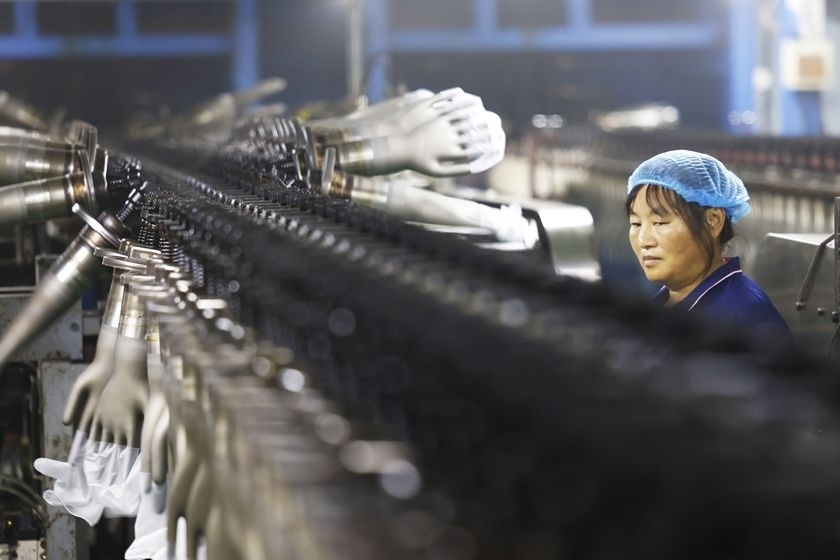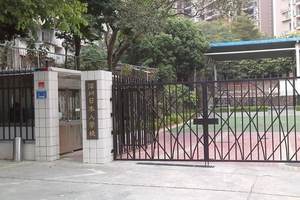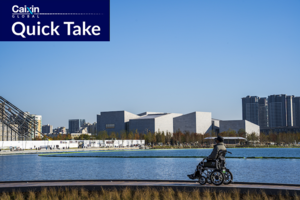Commentary: Making Foreign Investors Feel Safe in China is Essential For Its Economic Progress
Listen to the full version


Creating a safe, fair and law-based business environment for foreign investors is essential if China’s economic transformation is to progress smoothly. Several violent attacks involving foreigners in recent weeks show further improvement is needed.
China’s top leadership reaffirmed at the Third Plenum of the Chinese Communist Party’s 20th Party Congress in July that it intends to continue its national policy of opening-up by promoting reform through transparency.

Download our app to receive breaking news alerts and read the news on the go.
Get our weekly free Must-Read newsletter.
- DIGEST HUB
- China aims to create a safe, fair, and law-based business environment, addressing foreign investors' concerns, despite recent violent incidents involving foreigners.
- China's new foreign-invested enterprises increased by 11.4% year-on-year; high-tech manufacturing sector attracted significant foreign investment.
- China focuses on improving safety and addressing anti-foreign sentiments to maintain foreign investors' confidence and contribute to economic growth.
Creating a conducive and law-based business climate for foreign investors is pivotal for China's economic transformation. However, recent violent incidents involving foreigners suggest the need for further improvements [para. 1]. At the Third Plenum of the Chinese Communist Party's 20th Party Congress in July, top leadership confirmed its national policy of opening up, aiming for transparency through reform [para. 2]. A key focus is crafting a market-oriented, law-based, and internationalized business environment while legally safeguarding foreign investors' rights [para. 3]. Efforts were also discussed to simplify life in China for foreigners regarding entry requirements, residency permits, medical care, and payment options [para. 4], reflecting China's commitment to global economic engagement.
Despite these efforts, violent incidents like knife attacks on foreign students in Suzhou and Shenzhen have raised safety concerns for foreign investors [para. 5]. High-quality development progress dictates that foreign investment is crucial for China's future. The Ministry of Commerce reports 31,654 new foreign-invested enterprises registered from January to July, marking an 11.4% year-on-year increase [para. 6]. Foreign investment structure is enhancing, notably in high-tech manufacturing, which attracted 63.8 billion yuan ($9 billion), accounting for 12.8% of the total, with a 2.4 percentage point rise from the previous year. Sectors like medical equipment manufacturing saw an 87.5% year-on-year growth, and professional technical services, including R&D centers, noted a 43.4% increase [para. 7].
Global challenges such as unilateralism and decoupling policies are creating increased friction between nations, impacting cross-border businesses and individuals [para. 8]. Foreign investment in China faces uncertainties, thereby pressuring investors and necessitating robust efforts from China to maintain faith in its economy [para. 9]. Safety remains a significant factor for investors evaluating potential business venues. Incidents like the deadly stabbing of a 10-year-old Japanese schoolboy in Shenzhen and another knife attack in Suzhou that injured a Japanese mother and her child, also killing a Chinese bus attendant, have sparked considerable worry [para. 10].
Creating a safe environment is essential not only for foreign investors but also for Chinese society, as this issue gains traction on international social networks [para. 11]. Chinese authorities have assured social stability, with Foreign Ministry spokesperson Lin Jian reiterating China's welcoming stance towards foreigners and commitment to ensuring their safety [para. 13]. The State Council recently pledged to promptly address foreign investors' legitimate concerns and optimize the business environment through practical measures [para. 14].
Anti-foreign sentiments can have adverse impacts, evolving into dangerous behavior. Extremist hate speech must be rapidly countered so foreign investors and their families do not feel threatened. Internet platforms acted against posts inciting extreme nationalism following the Suzhou incident, though more efficient measures are necessary [para. 16]. Historically, China has effectively addressed foreign investors' concerns, turning crises into opportunities that deepen mutual trust [para. 17].
In this challenging context, foreign investment continues to be vital for energizing the Chinese economy, and China remains committed to mutual benefit and trust. Handling such incidents effectively is crucial to maintaining and bolstering these connections [para. 18]. Zhou Dongxu, a reporter at Caixin Media, reinforces these points in his article [para. 19].
- Suzhou
- Suzhou, a city in China, recently experienced a violent knife attack that injured a Japanese mother and her child while claiming the life of a Chinese bus attendant. This incident, alongside another in Shenzhen, has heightened safety concerns among foreign investors. The Chinese government is taking measures to ensure the safety of all residents and address foreign investors' concerns to maintain a stable and welcoming environment.
- Shenzhen
- Shenzhen, mentioned in the article as the site of a violent knife attack on a Japanese schoolboy, is one of the cities contributing to concerns about foreign investors' safety in China. Despite isolated incidents, the city is part of China's strategy to create a market-oriented, law-based business environment to foster foreign investment. Recent violent attacks have prompted the authorities to affirm their commitment to ensuring safety for all foreign nationals in Shenzhen and across China.
- In the first half of 2024:
- China's high-tech manufacturing sector attracted 63.8 billion yuan ($9 billion) in foreign investment, accounting for 12.8% of the country’s total, a 2.4 percentage point increase from the same period last year. Medical equipment manufacturing experienced a year-on-year growth of 87.5% and the professional technical services sector saw a 43.4% increase.
- From January to July 2024:
- 31,654 new foreign-invested enterprises registered in China, representing an 11.4% year-on-year increase.
- Before July 2024:
- Several violent incidents, including knife attacks on foreign students in Suzhou and Shenzhen, raised questions about safety in China.
- Before July 2024:
- A deadly stabbing of a 10-year-old Japanese schoolboy occurred in Shenzhen, and a similar knife attack in Suzhou injured a Japanese mother and her child while claiming the life of a Chinese bus attendant.
- By July 2024:
- China's top leadership reaffirmed at the Third Plenum of the Chinese Communist Party’s 20th Party Congress that it intends to continue its national policy of opening-up by promoting reform through transparency.
- PODCAST
- MOST POPULAR







 Sign in with Google
Sign in with Google
 Sign in with Facebook
Sign in with Facebook
 Sign in with 财新
Sign in with 财新